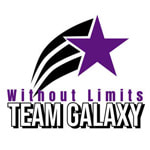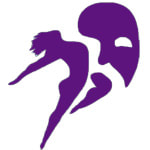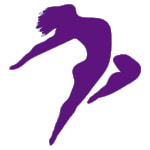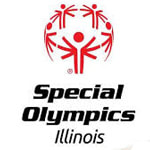Extreme Weather Guideline
Without Limits-Team Galaxy wants to establish a comprehensive weather safety guideline to help create a safer environment for everyone involved, including regular weather monitoring, emergency action plans, and training for all Without Limits athletes. This guideline addresses specific weather hazards such as extreme heat, lightning, heavy rain, strong winds, and snow or ice events. It is crucial for Without Limits to prioritize risk mitigation strategies that focus on incident prevention and effective response measures.
The following guidelines have been developed to assist coaches and competition hosts in making decisions regarding extreme weather to ensure the safety of athletes, coaches and volunteers. Without Limits-Team Galaxy will use the National Weather Service for all official weather
reports and warnings. In the event of rain or severe weather, the final decision to cancel or postpone an event will rest with head coach of the sport or SOAD. The following link can provide information on the National Weather Service: https://www.weather.gov/
Coaches will carry a current roster (required) with contact points to notify parents, guardians and athletes of cancellation. If the weather forecast shows severe weather, coaches should try to notify athletes at least two hours prior to start time of cancellation.
If inclement weather is forecasted, a coach should be designated to monitor the weather forecast and radar during the practice or event. If the facility being used for competition has a lightning detection system, and a facilities policy in place that is more stringent than described below, the facilities policy will supersede the Special Olympics policy.
Rain Policy
Decisions on field closures are made as late as possible in order to give the best possible chance for practices or game to be played. Coaches should try to notify athletes at least two hours prior to start time of cancellation.
Hot Weather
The risk of heat-related illness from vigorous sports activity increases with the temperature. The body generates heat, which cannot be dissipated readily when the ambient temperature exceeds 85ºF, depending upon the humidity. Hot weather is considered at any point where the heat index reaches or exceeds 90ºF. As a general rule, training programs should be reviewed if the heat index at the start of training is projected to be above 95ºF. Coaches should exercise caution and provide additional water breaks.
If temperature exceeds 95 degrees or when the heat index is 102 degrees, outside activity is not recommended. All activities will be canceled when the National Weather Service has issued a Heat Warning that may impact venues.
Program situation – the outside activity should be cancelled and modifications made to train indoors. This decision is the responsibility of the Head Coach.
Under 95 degrees:
Shaded or indoor areas must be provided. Frequent water breaks every ten minutes. Water will be provided to ensure adequate
consumption.
These precautions will be the responsibility of the Without Limits-Team Galaxy SOAD in conjunction with the Head Coaches.
Cold Weather
If temperature with the wind chill is lower than –10 degrees, outside activity is not recommended. The following steps must be taken in such circumstances where the activity is deemed necessary, to minimize the effects of cold weather:
Program situation – the outside activity should be cancelled and modifications made to train indoors. This decision is the responsibility of the Head Coach.
These precautions will be the responsibility of the Without Limits-Team Galaxy SOAD in conjunction with the Head Coaches.
Air Quality
Following the Health Guidelines all outdoor activities should be moved indoors, rescheduled or cancelled if the Air Quality Index (AQI) is at a level 100 or above for the area where the outdoor activity is to take place.
Lightning
Without Limits-Team Galaxy outdoor events can be held while it is raining if it is safe to do so. However, if thunder is heard events should be halted and participants should seek shelter until 30 minutes after thunder has been heard. If lightning is detected within eight miles of the practice or competition facility, all coaches, players, referees, and spectators are to withdraw from the field and seek proper shelter. No place outside is safe near thunderstorms. The best shelter is a large, fully enclosed, substantially constructed building. A vehicle with a solid metal roof and metal sides is a reasonable second
choice.30-minute Rule: Wait at least 30 minutes after the last sound of thunder or the last lightning flash before giving the “all clear” signal and resuming normal activity. If thunder is heard or lightning is seen again within that 30-minute time frame, the event will continue to be postponed or officials may
deem to cancel the event. If any of the following conditions exist, the event is suspended and individuals are moved to a safe location:
The top priority is the health and safety of all involved in an event. Weather issues may result in the cancellation of some events or practices.
Without Limits-Team Galaxy Best Practices:
Please see the following recommendations for coaches:
If caught outdoors far from shelter, stay away from tall objects. This includes trees, poles, wires and fences. Take shelter in a low-lying area but be on the alert for possible flooding.
If there are any questions about the policy or guideline, please contact the SOAD - Richard Crothers
The policy follows Special Olympics Illinois and Weather Safety Guidelines for Sports Teams outlined by SAFE ATHLETE.
The following guidelines have been developed to assist coaches and competition hosts in making decisions regarding extreme weather to ensure the safety of athletes, coaches and volunteers. Without Limits-Team Galaxy will use the National Weather Service for all official weather
reports and warnings. In the event of rain or severe weather, the final decision to cancel or postpone an event will rest with head coach of the sport or SOAD. The following link can provide information on the National Weather Service: https://www.weather.gov/
Coaches will carry a current roster (required) with contact points to notify parents, guardians and athletes of cancellation. If the weather forecast shows severe weather, coaches should try to notify athletes at least two hours prior to start time of cancellation.
If inclement weather is forecasted, a coach should be designated to monitor the weather forecast and radar during the practice or event. If the facility being used for competition has a lightning detection system, and a facilities policy in place that is more stringent than described below, the facilities policy will supersede the Special Olympics policy.
Rain Policy
Decisions on field closures are made as late as possible in order to give the best possible chance for practices or game to be played. Coaches should try to notify athletes at least two hours prior to start time of cancellation.
Hot Weather
The risk of heat-related illness from vigorous sports activity increases with the temperature. The body generates heat, which cannot be dissipated readily when the ambient temperature exceeds 85ºF, depending upon the humidity. Hot weather is considered at any point where the heat index reaches or exceeds 90ºF. As a general rule, training programs should be reviewed if the heat index at the start of training is projected to be above 95ºF. Coaches should exercise caution and provide additional water breaks.
If temperature exceeds 95 degrees or when the heat index is 102 degrees, outside activity is not recommended. All activities will be canceled when the National Weather Service has issued a Heat Warning that may impact venues.
Program situation – the outside activity should be cancelled and modifications made to train indoors. This decision is the responsibility of the Head Coach.
Under 95 degrees:
Shaded or indoor areas must be provided. Frequent water breaks every ten minutes. Water will be provided to ensure adequate
consumption.
These precautions will be the responsibility of the Without Limits-Team Galaxy SOAD in conjunction with the Head Coaches.
Cold Weather
If temperature with the wind chill is lower than –10 degrees, outside activity is not recommended. The following steps must be taken in such circumstances where the activity is deemed necessary, to minimize the effects of cold weather:
Program situation – the outside activity should be cancelled and modifications made to train indoors. This decision is the responsibility of the Head Coach.
These precautions will be the responsibility of the Without Limits-Team Galaxy SOAD in conjunction with the Head Coaches.
Air Quality
Following the Health Guidelines all outdoor activities should be moved indoors, rescheduled or cancelled if the Air Quality Index (AQI) is at a level 100 or above for the area where the outdoor activity is to take place.
Lightning
Without Limits-Team Galaxy outdoor events can be held while it is raining if it is safe to do so. However, if thunder is heard events should be halted and participants should seek shelter until 30 minutes after thunder has been heard. If lightning is detected within eight miles of the practice or competition facility, all coaches, players, referees, and spectators are to withdraw from the field and seek proper shelter. No place outside is safe near thunderstorms. The best shelter is a large, fully enclosed, substantially constructed building. A vehicle with a solid metal roof and metal sides is a reasonable second
choice.30-minute Rule: Wait at least 30 minutes after the last sound of thunder or the last lightning flash before giving the “all clear” signal and resuming normal activity. If thunder is heard or lightning is seen again within that 30-minute time frame, the event will continue to be postponed or officials may
deem to cancel the event. If any of the following conditions exist, the event is suspended and individuals are moved to a safe location:
- The facility lightning detection device provides an alert.
- If no lightning detection device, then the first flash of lightning or clap of thunder.
The top priority is the health and safety of all involved in an event. Weather issues may result in the cancellation of some events or practices.
Without Limits-Team Galaxy Best Practices:
Please see the following recommendations for coaches:
- To plan for a safe day, check the weather forecast first. If thunderstorms are forecast, avoid being outdoors at that time or make an alternate plan. Identify safe places and determine how long it will take you to reach them.
- Watch the skies for developing thunderstorms and listen for thunder. As soon as you hear thunder, quickly get to a safe location. If you can hear thunder, you are in danger of being hit by lightning. More people are struck before and after a thunderstorm than during one.
- Get to a safe place. A safe location is a fully enclosed building with wiring and plumbing. Sheds, picnic shelters, tents or covered porches do NOT protect you from lightning. If no sturdy building is close by, get into a metal-roofed vehicle and close all the windows.
- Do not handle electrical equipment, telephones or plumbing. These are all electrical conductors. Using a computer or wired video game system, taking a bath or touching a metal window frame all put you at risk of being struck by lightning. Use battery-operated appliances only.
If caught outdoors far from shelter, stay away from tall objects. This includes trees, poles, wires and fences. Take shelter in a low-lying area but be on the alert for possible flooding.
If there are any questions about the policy or guideline, please contact the SOAD - Richard Crothers
The policy follows Special Olympics Illinois and Weather Safety Guidelines for Sports Teams outlined by SAFE ATHLETE.







